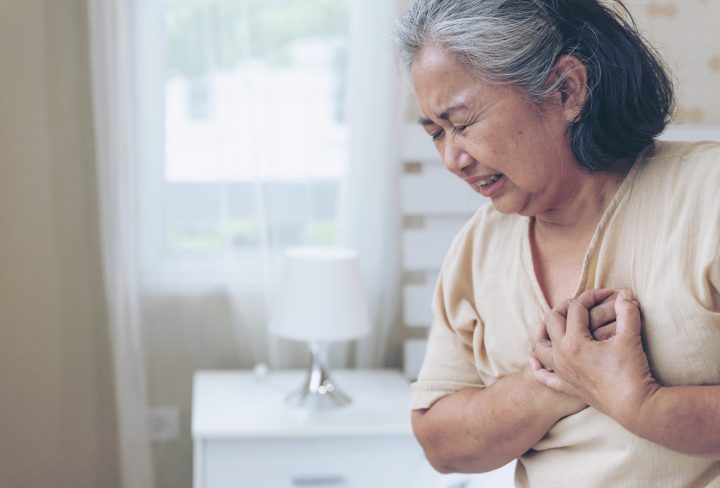Arrhythmias: What is it?
An arrhythmia is an irregular heartbeat where a person’s heart may beat too quickly or slowly in an irregular rhythm.
Arrhythmia or irregular heartbeat occurs when the electrical signals in your heart do not work properly. This can affect the heartbeat and blood flow through the heart. When the blood does not flow properly to the heart, blood clots can be formed.
In case of arrhythmia, there is an increased risk of blood clots developing and travelling from your heart to other body parts.
Symptoms Of Irregular or Abnormal Heartbeat (Arrhythmia)
Arrhythmias may not cause noticeable symptoms and can be identified only during an examination by monitoring your pulse, listening to your heartbeat, or performing diagnostic tests.
Some of the commonly noted symptoms include:
- Fluttering in the chest
- Racing heartbeat
- Slow heartbeat
- Chest pain
- Shortness of breath
- Sweating
- Dizziness or feeling lightheaded
- Chest discomfort
- Weakness or fatigue (feeling very tired)
- Weakening of the heart muscle
What Are the Causes and Risk factors of Irregular or Abnormal Heartbeat (Arrhythmia)
Triggers and risk factors can cause an arrhythmia.
Triggers include-
- Stress
- Smoking or drinking too much alcohol or caffeine
- Drugs or Medications (drugs like nicotine or some cold and cough medications bought without a prescription can cause arrhythmias)
Risk factors are associated with your overall health or genetics. They can depend on your age (65 years or older), gender (female), race or ethnicity, or health conditions such as:
- Coronary Artery Disease and other Heart Problems
- High Blood Pressure
- Congenital Heart Disease (having a heart problem from birth)
- Thyroid Disease
- Obstructive Sleep Apnea (sleep-related breathing problem)
- Electrolyte Imbalance (potassium, sodium, calcium, and magnesium)
How To Know If You Have an Irregular Heartbeat (Arrhythmia)?
Make an appointment with a doctor if you experience any symptoms of arrhythmias or if you are above 65years old. The doctor may conduct various tests to establish the presence of arrhythmias. They include-
- Electrocardiogram (ECG)
- Echocardiogram
- Stress test (to record arrhythmias that start or get worse with exercise)
- Cardiac catheterisation (to determine the cause of arrhythmia)
- Electrophysiology study (to find the cause of the abnormal rhythm and helps determine the best treatment)
- Tilt table test (to evaluate heart rhythm, blood pressure, and other measurements)
- Ambulatory monitors for heart monitoring like Holter monitor (to record heart rhythm continuously for 1 to 2 days while at home or work)
- Insertable cardiac monitor (a tiny device to monitor your heart rhythm continuously for a year or more)
How To Treat an Irregular Heartbeat (Arrhythmia)?
Treatment of arrhythmias depends on the type and severity of the condition. In some cases, treatment is not necessary.
Treatment options include lifestyle changes, medications, electrical devices, invasive therapies, or surgery.
Heart-rate control drugs are drugs used to regulate the heart rate, and certain heart medications are used to treat other related conditions that may be causing an irregular heart rhythm.
Devices: The cardiologist may insert instruments like a permanent pacemaker or implantable cardioverter defibrillator to maintain the heart’s rhythm.
How To Prevent Irregular Heartbeat (Arrhythmia)?
Heart arrhythmias may be prevented by making lifestyle changes that lower the risk of developing heart disease.
Lifestyle changes for heart health include:
- Maintaining a balanced diet
- Maintaining an active lifestyle
- Being healthy in terms of weight
- Limiting or avoiding caffeine and alcohol
- Not smoking
- Reducing stress (extreme stress and anger can cause heart rhythm problems)
- Use medications as directed by the doctor
Do’s & Don’ts to Prevent Irregular Heart Beats? (Arrhythmia)
Do’s:
- Do monitor caffeine intake
- Do stay active
- Do maintain a healthy diet
Don’ts:
- Do not go overboard on alcohol
- Do not skimp out on sleep
- Do not ignore your arrhythmia, even if it is mild
- Do not neglect the rest
Inform your doctor about all the medicines you use, especially those bought without a prescription.
Arrhythmias can have serious consequences if left untreated. It is important to recognize the symptoms and seek medical attention promptly. With proper diagnosis and treatment, individuals with arrhythmia can lead healthy and active life.


